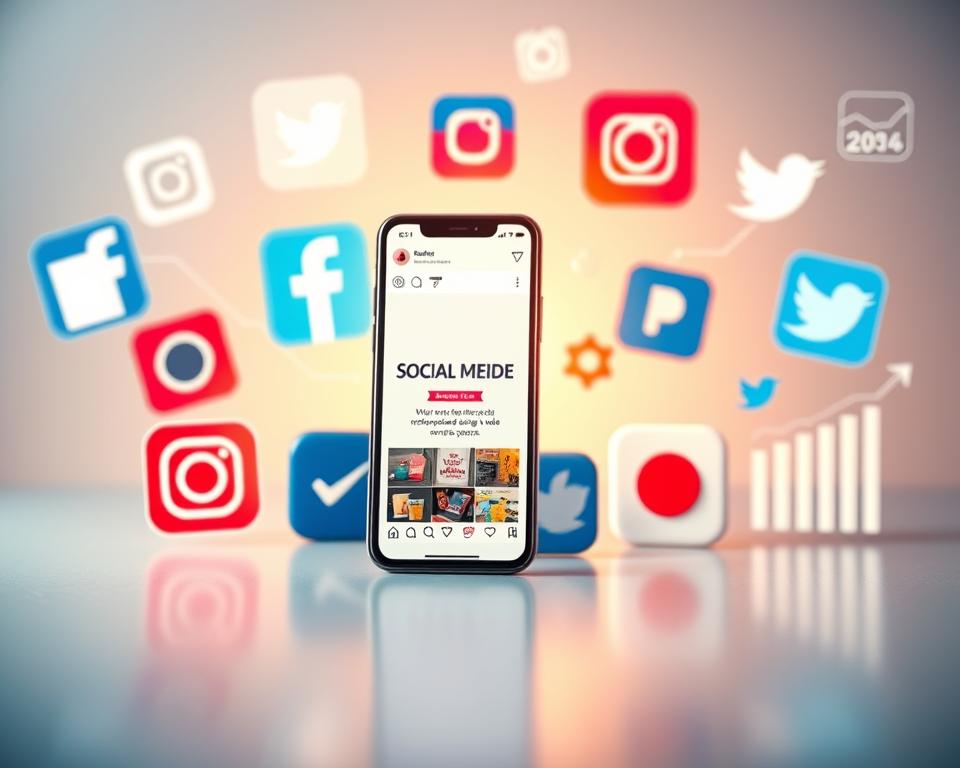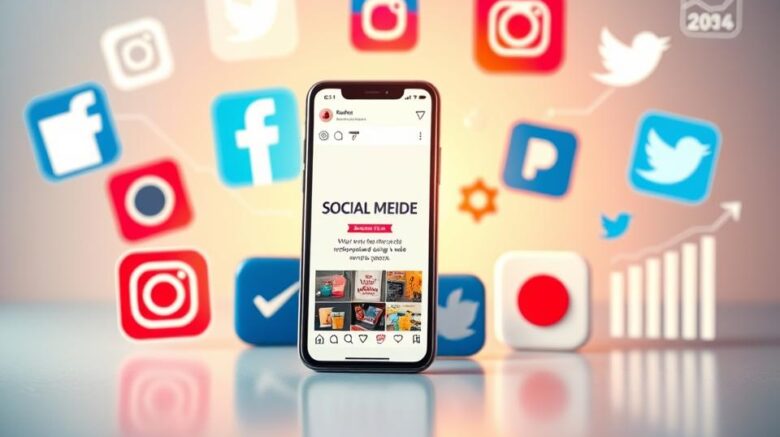1on1 Marketing: Unlock Personalized Customer Engagement.
Ever ponder why some brands connect deeply with their audience while others falter? The answer is 1on1 Marketing, a groundbreaking approach that transforms generic marketing into bespoke experiences. It focuses on individual tastes, creating a bond that traditional marketing can’t match. This approach shifts the focus from mass marketing to tailored strategies that speak directly to each customer’s heart.
When companies embrace 1on1 Marketing, they forge deeper connections. They can craft marketing plans that truly resonate with their audience. This section explores the core of 1on1 Marketing, showing how it enables brands to engage with customers on a more personal level, 1 on 1 official company website.
The Evolution of Marketing Strategies
The marketing landscape has seen a significant transformation over the years. At first, marketers deployed broad-brush strategies aimed at average customers. Today, the market demands a focus on customer engagement through tailored dialogues. This shift emphasizes the need to understand each customer as an individual, not just part of a group.
With marketing’s evolution, it’s clear that generic tactics fall short. Modern strategies aim to create meaningful interactions, building relationships instead of just pushing products. Marketers now use data insights to inform their approach, moving towards personalized tactics that meet unique customer needs.
This evolution not only deepens customer connections but also boosts brand loyalty and retention. In today’s crowded market, brands offering personalized journeys stand apart. They create platforms for dialogue and engagement, ensuring customers feel appreciated.

| Strategy Type | Characteristics | Example |
|---|---|---|
| Generic Approach | Broad messaging, wide reach | Generic ad campaigns |
| Tailored Tactics | Customized dialogues, fine-tuned reach | Custom product suggestions |
Personalization’s Role in B2B
As B2B marketing evolves, personalization is indispensable. Professionals aim to increase conversions via personalized 1on1 strategies. Studies show that many see this method as key to keeping customers. In today’s fast-paced world, connecting with audiences through effective engagement is critical.
Customization addresses the hurdle of capturing attention. It makes sure messaging resonates with each individual’s tastes. Focusing on personal experiences allows brands to stand out amid competition.
The rise in customer touchpoints has heightened the need for personalized engagement. Companies embracing tailored tactics meet needs and forge lasting bonds. Such an approach offers a distinct advantage in today’s market.
Defining One-to-One Marketing
One-to-one marketing is about tailoring experiences to meet each customer’s unique needs. It leverages data insights to design personalized engagement tactics. By concentrating on individual experiences, it fosters robust customer bonds.
Imagine a cafe where the barista recalls your go-to order—this is one-to-one Marketing in action. This simple gesture demonstrates how attending to preferences bolsters satisfaction. It turns a simple transaction into a memorable experience, building loyalty.
Implementing one-to-one Marketing requires a deep dive into customer data. They analyze behaviors and preferences to customize messaging. This ensures their marketing efforts connect with individual tastes, leading to stronger customer connections and higher satisfaction.
As companies pursue personalized engagement, they recognize that customization is key lasting success. Those who excel in creating individualized experiences gain significant benefits from their efforts.
Why Personalized Engagement Pays Off
Tailored engagement offers numerous advantages for today’s brands. It significantly increases satisfaction by delivering experiences that align with individual needs. Studies show that 80% of consumers prefer to buy from brands that offer personalized interactions. This highlights the significant impact of customized marketing.
Personalized loyalty programs boost retention. By targeting distinct pain points and tastes, companies foster a sense of being valued. This link promotes repeat business, increasing profits.
Tailored marketing results in better conversion rates. Custom suggestions and targeted messaging steer customers from consideration to purchase. Highlighting the benefits of personalized marketing enhances brand perception and positions businesses for success in a competitive market.
| Benefit | Description | Impact |
|---|---|---|
| Happy Customers | Personalized experiences improve overall customer happiness. | Increased chances of repeat purchases. |
| Rewards Tailored to You | Custom offers boost customer engagement. | Stronger retention and brand loyalty. |
| Sales Upsurge | Targeted content drives customer actions effectively. | Boost in sales and revenue. |
Hurdles to Personalized Marketing
Brands face numerous hurdles when aiming to implement personalized marketing. One major challenge is the complexity of data collection. Robust data is essential for effective segmentation. Without this, campaigns miss the mark, squandering opportunities and resources.
Companies must balance personalization with broad messaging. Big enterprises struggle to keep a personal touch amid heavy automation. This can result in losing the personal touch that customers cherish. – 1on1 Marketingofficial company website
Small businesses encounter unique barriers too. They may lack clear messaging, limiting their personalization efforts. Recognizing these challenges is essential for marketers aiming to improve their strategies and engage customers more effectively.
Tools Fueling Personalized Marketing
Innovative tech is transforming personalized engagement. CRM systems are pivotal for managing customer data. They organize data, essential for crafting bespoke experiences. A strong CRM enables deeper insight into preferences and behaviors.
AI enhances personalization with precise targeting and automation. ML algorithms process large datasets to reveal trends and behaviors. This enables strategy refinement. Such automation cuts down on manual work and boosts the effectiveness of marketing campaigns.
Studies reveal that 72% of marketers focus on CRM systems for personalization. 55% use automation tools to simplify campaigns. These technologies empower businesses to offer customized experiences on a large scale. They ensure campaigns connect with individuals rather than broad audiences.
Merging these tools creates a dynamic engagement framework. The fast-evolving scene drives adoption of cutting-edge tech. These tools not only improve efficiency but also strengthen connections with their audiences.
Best Practices for Personalizing Marketing Efforts
Effective personalized marketing hinges on key best practices. They guarantee resonance and improved engagement. The core elements include:
- Audience segmentation is essential for targeting specific groups based on common traits. It enables precision messaging, increasing engagement rates.
- Using optimized messaging enhances the customer experience. Uniform, relevant messaging across platforms builds trust and fosters ongoing engagement.
- Adopting experimental approaches, like A/B testing, is critical. It helps pinpoint the most impactful marketing approaches by comparing different messages and metrics.
Leveraging customer data is crucial to grasp behaviors and preferences. Marketers should regularly analyze this data to refine their strategies. Following these practices enables brands to develop personalization that truly resonates with their audience.
Creative Tactics for Personalized Marketing
Innovative tactics improve personalization across all touchpoints. Brands now use personalized emails that match individual tastes, making messages more impactful. Analyzing purchase history allows spot-on product suggestions, increasing sales.
Segment-specific videos are another effective tactic. They capture attention and build emotional bonds with viewers. Also, loyalty programs that evolve with user habits offer rewards for meaningful interactions, enriching the customer journey.
| Creative Tactic | Description | Benefit |
|---|---|---|
| Personalized Emails | Emails designed to individual preferences and behaviors. | Increases engagement and conversion rates. |
| Suggested Products | Suggestions based on previous purchases and browsing history. | Boosts sales and customer satisfaction. |
| Tailored Videos | Video content customized for specific segments. | Strengthens brand connection and engagement. |
| Adaptive Rewards | Rewards systems that adapt to individual behaviors. | Increases loyalty and repeat business. |
Brands can gain a lot by integrating unique offers across different platforms like social media, emails, and in-app notifications. Every touchpoint is an opportunity to demonstrate commitment to personalized engagement. It creates memorable experiences, making brands stand out in a crowded landscape.
What’s Next for One-to-One Marketing
The world of 1on1 marketing is rapidly changing, driven by the latest marketing trends. AI will power campaigns tailored to individual requirements. This approach boosts marketing success and builds stronger customer connections by delivering the right content at the right time.
Omnichannel experiences are another key trend. Customers now expect a smooth journey across different platforms, from social media to emails. Brands must maintain uniform messaging to satisfy these demands. Understanding where and how customers interact helps create a unified experience, strengthening brand loyalty.
Adapting to these shifts, ethical data practices will become essential for maintaining trust with consumers. With growing concerns over data privacy, marketers must be transparent and responsible with data. Prioritizing ethical practices meets regulations and cultivates trust, paving the way for loyal relationships in one-to-one Marketing’s future.
